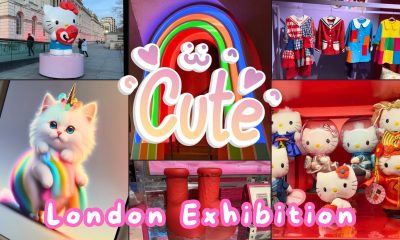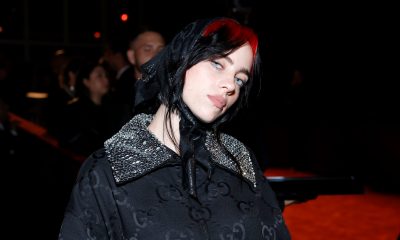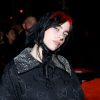ART NEWS
Night Terrors
In their exhibition “Bijeg u noć,” at Martos, the Croatian-born, New York–based duo TARWUK (Bruno Pogačnik Tremow and Ivana Vukšić) presented a dystopian sci-fi vision featuring crumbling bionic forms, black, pitched mountains, and ominous specters. Comprising paintings, sculptures, and drawings, the show drew on the artists’ childhood memories of the devastating Croatian War of 1991–95, in which the country fought for independence from Yugoslavia. While nothing in “Bijeg u noć” directly referred to this historical era, its trauma manifested in terrifying, oblique form, sublimated in dark fantasies that borrow equally from Huma Bhabha’s war-torn grotesques, the night-cloaked bleakness of Francisco Goya’s black paintings, and H.R. Giger’s phallic, machine-like monster from the movie Alien (1979).
The exhibition’s title is Croatian for “Escape into the night,” but the individual works are all titled in the artists’ invented language, as if tacitly acknowledging that words alone are ill-equipped to articulate the horrors they witnessed as children. Two humpbacked figures carefully traverse a glowing mountain passage in the painting MRTISKLAAAH_OnaruONRC.98 (2019), their backs fragmented into rivulets of black and white pigment. Intricately patterned brushwork likewise composes the cliffsides, creating a tension between abstraction and figuration. Four square clay panels black as soot are appended to the work’s four sides. Depicting curling leaves and branches, the panels give the work a cruciform shape, nodding to the macabre dimension of much Christian allegory and tradition, which can instill a supplicating fear.
TARWUK, MRTISKLAAAH_LENT.666.W, 2019-20, acrylic, graphite, color pencil, and oil on canvas, 49 by 40 inches; at Martos
Charles Benton
Other works similarly allude to the terrifying aspects of Christianity. The lower panel of MRTISKLAAAH_LENT.666.W (2019–20) spells out the word lent in bold red letters, crowned by an abstract landscape of tossing and turning blacks and browns, suggesting forms crumpled into a ball and wrung through water, colors running left, right, and down. Some paintings depict hazy ghosts: a smokelike apparition of wispy white materializes out of thin air in MRTISKLAAAH_evsovtrm.Da.811 (2020), while another specter in MRTISKLAAAH_VIDoLeNx_H.44 (2017–20) unfolds massive wings like the Jabberwock rearing its head.
TARWUK, KLOSKLAS_divco/ZUBB32yeltenb, 2020, resin clay, polyurethane foam, steel, plastic, fabric, BQE relics, wire, rope, human teeth, coyote tooth, schist, cardboard, and aluminum, 90 by 42 inches; at Martos
Charles Benton
In the exhibition’s sculptural works, bodily forms are assembled and disassembled in Frankensteinian ways. KLOSKLAS_5T1ll43r3 (2020) is a standing female figure punctured by a mechanical apparatus that supports her detached head, raising it high like a freakish beacon, its eyeless sockets full of putty. Another miniature nude juts from its groin, arms extended as if in prayer. In KLOSKLAS_divco/ZUBB32yeltenb (2020), the figure seems to be transforming into something entirely inorganic, its shriveled, desiccated flesh-and-blood body held up by machine parts attached to the back of its head and spine—the definition of malformed. These works are discomforting, but also quite beautiful, finely suturing together unexpected components: a string of pennies on the latter sculpture, for instance, or the circuit boards forming part of the former’s neck. Rebar helps buttress a downcast head atop a ceramic base in KLOSKLAS_ H45()numidor (2019); the checklist cites among the work’s materials “BQE [Brooklyn-Queens Expressway] relics” and steel, along with coyote hide, human teeth, and “mummified spider nest.” (Quite a list!) Given such eclectic materials and the head-spinning range of art-historical references and cues, TARWUK’s work can seem overwhelming or excessive. The most impressive aspect of “Bijeg u noć,” nevertheless, was how the artists assembled these disparate elements into a cohesive cosmology.











